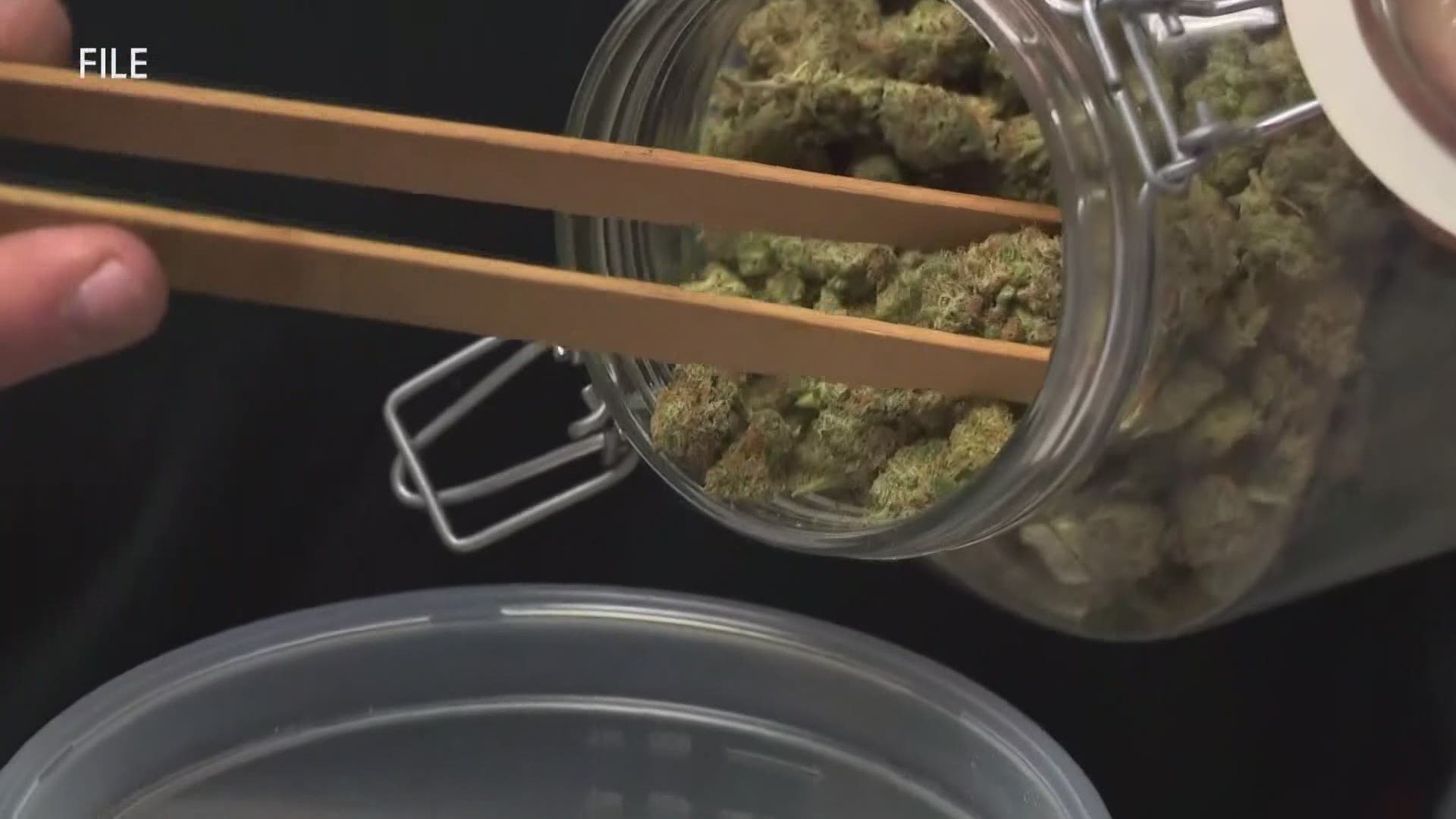GRAND RAPIDS, Mich. — The illegal marijuana market in Michigan is a thriving business, in part because of the rapid growth of the highly regulated commercial market.
Data provided by the Michigan State Police Marijuana Tobacco Investigation Section revealed that 83% of the seizures of illicit marijuana plants and products occur in municipalities that do not have regulated marijuana establishments.
“A lot of the unregulated market does not have to go through rigorous testing like the regulated market does, which costs a lot of money,” said Paul Albarran, associate attorney for Varnum Law in Grand Rapids. “In the unregulated market, you really have the ability to undercut cost. Some of these licenses are quite expensive. At one time, a Class C marijuana grower license application license fee cost $40,000.”
As a result, the Michigan Marijuana Regulatory Agency is stepping in to curb the progression of the illegal marijuana market by reducing the two-year restriction imposed initially under the Michigan Regulation and Taxation of Marihuana Act (MRTMA) for residents who’d like to apply for recreational marijuana licenses.
Starting on March 1, recreational marijuana applicants no longer will need to have a medical license under Medical Marihuana Facilities Licensing Act (MMFLA) to apply for marijuana retailer, marijuana processor, Class B marijuana grower, Class C marijuana grower and marijuana secure transporter licenses.
The new timeline allows applicants who do not have an active state operating license under MMFLA to begin the Step 1 pre-qualification process before Feb. 28 but must wait until March 1 to begin Step 2, which allows applicants to submit their adult-use license applications.
That timeline also allows applicants who already have an active operating license under MMFLA to utilize the “Existing Medical Marijuana Facility Licensees” instructions, which provides an expedited Step 1 pre-qualification process until March 1. Those applicants are eligible to submit Step 2 license applications for the adult-use license type.
However, on or after March 1, whether applicants have a MMFLA operating licenses or not, all applicants must submit a complete Step 1 pre-qualification application including all business documentation and supplemental applications.
The MRA still will expedite the application process of applicants who were previously eligible under MMFLA because their criminal and financial background checks already would have been conducted.
Albarran said lifting the 24-month restriction would reduce costs.
“If you wanted to operate a recreational dispensary in Michigan, you would have had to previously been granted a license under the medical statute,” he said. “So, basically, you’d be doubling your cost because you would have to spend all that money to get licensed under the medical statute, which involves application fees, attorney fees and building (expenses). Then you would have had to do the same thing with recreational with paying those extra licensing fees just to have a recreational facility. Now, the lifting of the restriction cuts that in half because anyone who wants to get involved in the recreational market can go ahead and apply without having to be previously licensed, so that is going to cut those costs significantly.”
Lifting the 24-month restriction won’t eliminate the potential for marijuana to be sold in places other than regulated facilities, Albarran said, but it will help.
“It will minimize it because consumers are more interested in going to a store knowing they are getting a product that is tested and safe,” he said.
RELATED VIDEO:
►Make it easy to keep up to date with more stories like this. Download the 13 ON YOUR SIDE app now.
Have a news tip? Email news@13onyourside.com, visit our Facebook page or Twitter. Subscribe to our YouTube channel.


